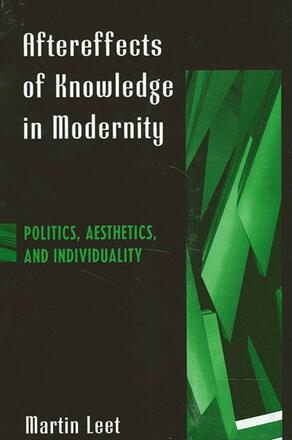
Aftereffects of Knowledge in Modernity
Politics, Aesthetics, and Individuality
Examines the relations among knowledge, politics, aesthetics, and individuality.
Description
The relentless accumulation of knowledge is a defining feature of modern life, but what if this feature begins to breed more confusion than enlightenment? Martin Leet examines how the often ambiguous and sometimes destabilizing aftereffects of knowledge have prompted a renewed interest in aesthetics and individuality in parts of contemporary political theory. He contends that this renewal is necessary and desirable, making his case through a multi-faceted critique of Ju¬rgen Habermas. He also engages a wide range of thinkers and traditions, including Nietzsche, Emerson, Weber, the ancient Greeks, and the more recent contributions of Judith Butler, William Connolly, and George Kateb. By focusing on debates about democracy and citizenship, Leet develops a distinctive understanding of the relations between politics, aesthetics, and individuality.
Martin Leet is Lecturer in Political Theory at the University of Queensland.
Reviews
"Leet treats the increasingly important topic of the aesthetic in a complex and interesting way by applying it to the question of individuality. Moreover, his tying individuality to developments in the evolution of knowledge is creative, original, and controversial." — Morton Schoolman, author of Reason and Horror: Critical Theory, Democracy, and Aesthetic Individuality